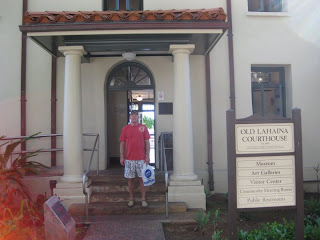 So, the really short synopsis is that a group of Jesuit priests and several other intellectuals take an asteroid to Rhakat, a newly discovered planet where they interact with the alien species that lives there. Before you file this in you're "do not read ever" category, let me start with my grade which is an A+. I have always believed very strongly that I didn't like science fiction so I began this book rather reluctantly. The truth is, I don't remember the last time I have read so fast and furiously, but never wanted a book to end. I found myself regularly trying to figure our how I could squeeze in a few minutes of reading time, and then continued thinking about the book when I wasn't reading. The science part of the book was fine, but what surprised me was the depth of the character development and the relationship between those characters. Through those characters the author presented numerous philosophical and theological questions - I like a book that makes me think while it is entertaining me. I don't want to say much more, I knew nothing about the book when I started. I will, though, leave you with a quote from an interview with the author, just as a tease.
So, the really short synopsis is that a group of Jesuit priests and several other intellectuals take an asteroid to Rhakat, a newly discovered planet where they interact with the alien species that lives there. Before you file this in you're "do not read ever" category, let me start with my grade which is an A+. I have always believed very strongly that I didn't like science fiction so I began this book rather reluctantly. The truth is, I don't remember the last time I have read so fast and furiously, but never wanted a book to end. I found myself regularly trying to figure our how I could squeeze in a few minutes of reading time, and then continued thinking about the book when I wasn't reading. The science part of the book was fine, but what surprised me was the depth of the character development and the relationship between those characters. Through those characters the author presented numerous philosophical and theological questions - I like a book that makes me think while it is entertaining me. I don't want to say much more, I knew nothing about the book when I started. I will, though, leave you with a quote from an interview with the author, just as a tease.Q: What's the moral of this story?
A: Maybe it's "Even if you do the best you can, you still get screwed." We seem to believe that if we act in accordance with our understanding of God's will, we ought to be rewarded. But in doing so we're making a deal that God didn't sign onto. Emilio has kept his end of a bargain that he made with God, and he feels betrayed. He believes he has been seduced and raped by God, that he's been used against his will for God's own purpose. And I guess that's partly what I'm doing with this book. I wanted to look at that aspect of theology. In our world, if people believe at all, they believe that God is love, God is hearts and flowers, and that God will send you theological candy all the time. But if you read Torah, you realize that God has a lot to answer for. God is a complex personality. I wanted to explore that complexity and that moral ambiguity. God gives us rules but those are rules for us, not for God."
A: Maybe it's "Even if you do the best you can, you still get screwed." We seem to believe that if we act in accordance with our understanding of God's will, we ought to be rewarded. But in doing so we're making a deal that God didn't sign onto. Emilio has kept his end of a bargain that he made with God, and he feels betrayed. He believes he has been seduced and raped by God, that he's been used against his will for God's own purpose. And I guess that's partly what I'm doing with this book. I wanted to look at that aspect of theology. In our world, if people believe at all, they believe that God is love, God is hearts and flowers, and that God will send you theological candy all the time. But if you read Torah, you realize that God has a lot to answer for. God is a complex personality. I wanted to explore that complexity and that moral ambiguity. God gives us rules but those are rules for us, not for God."
Read the book. Enjoy it. Let me know what you thought.


















 It was fun to watch the cousins, from both sides of the border, have so much fun together.
It was fun to watch the cousins, from both sides of the border, have so much fun together.









 We took the recommendation of the taco shop owner and went to Cafe Ole for Dinner.
We took the recommendation of the taco shop owner and went to Cafe Ole for Dinner. 


































 This was our last hour or so on the beach. Clearly the sadness didn't affect the posing.
This was our last hour or so on the beach. Clearly the sadness didn't affect the posing.
